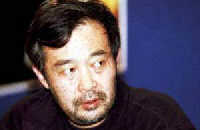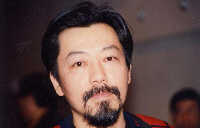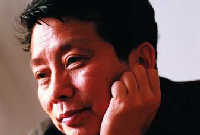 |
 |
 |
| Zhang Yimou | Chen Kaige | Tian Zhuangzhuang |
 |
 |
|
| Wu Ziniu |
Huang Jianxin |
Mainly referring to Beijing Film Academy graduates of the early 1980s, the fifth generation of Chinese directors generally had some bumpy and uneasy experiences before actually becoming directors, witnessing the dramatic changes of the society. They accepted professional training in filming during the period when China first initiated its epoch-making reform and opening-up policy. After graduation, they worked with new passion and brought some new momentum into the Chinese film industry.
They are very keen on new expressive ways and new thoughts, striving to find a new angle for each of their movies. They have a fervent desire to explore the history of China's culture as well as the structure of the national psychology.
Compared with their predecessors, they are completely innovative in terms of selecting suitable themes, employing narrative ways, portraying figures, using cameras, and dealing with movie frames. Their works are more subjective, individualistic, symbolic, and implicative.
Though there are not many members that belong to the group, they have had a huge impact in the Chinese film circle since they first appeared as a generation of Chinese directors.
Besides the most representative and best-known big names like Zhang Yimou, Chen Kaige, Tian Zhuangzhuang, Huang Jianxin, and Wu Ziniu, there are also a number of talents like Zhang Junzhao, Li Shaohong, Hu Mei, Zhou Xiaowen, Ning Ying, and Liu Miaomiao, who have demonstrated their unique gifts with distinctively different works.
The movies of the fifth generation first appeared in the autumn of 1983, withYellow Earthas the prelude. The other following movies likeKing of the Children, Hunting Ground, andHorse Thiefdeclared the beginning of a great film movement. By the 1990s, these directors were more mature, more varied in styles, and also more acknowledged both at home and abroad.
It is this generation of directors that really brought Chinese films to the world stage. The directors' personal struggles, the successes of their movies, their popularity both in China and abroad, and even the process for them to be recognized (criticized at the beginning, before gradually being acknowledged and accepted) are also an epitome of the changes of their time.
Author: Jeff